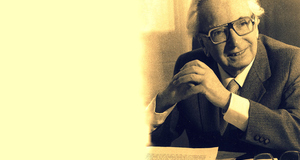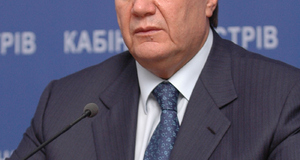Featured Article:Viktor Frankl's Logotherapy: The Search For Purpose and Meaning
By
2012, Vol. 4 No. 07 | pg. 3/3 | « Logotherapy TodayLogotherapy has many applications in the modern medical, psychological, and business sectors. Several studies reveal the benefits of using logotherapy in these environments. One such study sought to evaluate the effects of a logotherapy program for adolescents with terminal cancer. The study revealed that logotherapy is effective in improving meaning in life and quality of life of late adolescents with terminal cancer. Furthermore, the studied revealed that logotherapy can be used a preventive measure to ensure adolescents experience minimal existential distress (Kang, Shim, Jeon, & Koh, 2009). Combat-related Post-traumatic Stress Disorder (PTSD) and alcoholism have been known for debilitating areas of psychosocial functioning. One study utilized the logotherapeutic treatments of paradoxical intention and dereflection on veterans suffering from PTSD. The study revealed that veterans who had demophobia and avoided the topic of war altogether were able to share their war stories to crowds after receiving logotherapy (Southwick, Gilmartin, McDonough, & Morrissey, 2006). A similar study sought to evaluate the efficacy of utilizing logotherapy as a treatment option in alcoholic recovery group settings. The results demonstrated that groups receiving logotherapy as a treatment presented an increase in purpose in life and a decrease in suicidal ideation and alcoholism when compared to controls (Crumbaugh, & Carr 1979). Recently, businesses and business mangers have started to use logotherapy to introduce meaning into the work environment. Employees are often frustrated with the mundane and repetitious activities of work. However, logotherapy helps managers build team players by enabling individuals to see how they add value through the tasks they perform. Thus, business mangers are utilizing this meaning driven therapy to improve productivity and optimism in the working environment (Somani, 2009). For example, one study observed job satisfaction amongst nurses in Quebec. Nurses have been noted for having a highly stressful job that is emotionally demanding. Researchers discovered that job satisfaction and quality of life in nurses increased as a result of logotherapy as opposed to the control group (Fillion, Duval, Dumont, Gagnon, Tremblay, Bairati, & Breitbart, 2009).ConclusionCarol Rogers once stated that Frankl’s work is the most outstanding contribution to psychology in the last 50 years (Frankl, 1997). Frankl’s early life experiences with Adler and Freud helped him develop the more optimistic psychological practice of logotherapy. Frankl challenged Freudian theory by asserting that the search for meaning is the primary intrinsic motivation of humanity. He believed humans were more than mechanical parts driven by instinctual drives and promoted the idea that people could find meaning even in the worst conditions known to humanity. His horrific experiences in the Nazi concentration camps greatly influenced his theory of meaning. Frankl realized that although he was reduced to mere skeleton, the Nazis could not take one thing away from him: his freedom to choose his attitude. Logotherapy gracefully integrates ideas from religion, psychology and philosophy. In addition, Frankl’s logotherapy contributed many neologisms to the psychological literature including many terms surrounding the noölogical dimension. Moreover, Frankl helped develop effective logotherapeutic treatments such as paradoxical intention. Logotherapy has stood the test of time as it has many applications in the modern world. Viktor Frankl is a hero, a man who survived the onslaught of the tragic triad, lost everything, but decided to say yes to life in spite of everything. ReferencesBenvenga, N. (1998). Frankl, Newman and the meaning of suffering. Journal of Religion & Health, 37(1), 63-66. Boeree, C. G. (1998). Personality theories: Viktor Frankl. Retrieved from http://webspace.ship.edu/cgboer/frankl.html Cowen, S. D. (2005). Viktor Frankl: person, philosopher and therapist. Journal of Judaism & Civilization, 7(56), 1-22. Crumbaugh, J., & Carr, G. (1979). Treatment of alcoholics with logotherapy. The International Journal of Addictions, 14(6), 847-853. Fillion, L., Duval, S., Dumont, S., Gagnon, P., Tremblay, I., Bairati, I., & Breitbart, W. (2009). Impact of a meaning-centered intervention on job satisfaction and on quality of life among palliative care nurses. Psycho-Oncology, 18(12), 1300-1310. Frankl, V. (1959). Man’s search for meaning. New York: Random House. Frankl, V. (1955). The doctor and the soul. New York: Random House. Frankl, V. (1997). Viktor Frankl recollections: An autobiography. New York: Plenum. Gelman, M., & Gallo, J. (2009). Finding meaning in life at midlife and beyond: Wisdom and spirit from logotherapy. Journal of Judaism & Civilization, 8(59), 91-93. Hatt, H. (1965). Existential analysis and logotherapy: The contribution of Viktor E Frankl. Encounter, 26(3), 330-339. Hoffman, E. (1995). Victor Frankl at ninety: A voice for life. America, 172(9), 17-22. Kang, K., Shim, J., Jeon, D., & Koh, M. (2009). The effects of logotherapy on meaning in life and quality of life of late adolescents with terminal cancer. Journal of Korean Academy of Nursing, 39(6), 759-768. Pattakos, A. (2009). Search for meaning. Personal Excellence, 14(3), 5-6. Ponsaran, A. G. (2007). The philosophical foundations of Viktor Frankl's logotherapy. Philippiniana Sacra, 42(125), 339-354. Pytell, T. (2003). Redeeming the unredeemable: Auschwitz and man's search for meaning. Holocaust and Genocide Studies, 17, 89-113. Somani, S. (2009). In search of meaning. PM Network, 23(11), 25. Southwick, S., Gilmartin, R., McDonough, P., & Morrissey, P. (2006). Logotherapy as an adjunctive treatment for chronic combat-related PTSD: A meaning-based intervention. American Journal of Psychotherapy, 60(2), 161-174. Thorne, B. M., & Henley, T. B. (2005). Connections in the history and systems of psychology (3rd ed.). Boston: Houghton Mifflin. Viktor Frankl Institute. (2010). Life and work chronology [Data file]. Retrieved from http://www.viktorfrankl.org/e/chronology.html Zaiser, R. (2005). Working on the noetic dimension of man: Philosophical practice, logotherapy, and existential analysis. Philosophical Practice: Journal of the American Philosophical Practitioners Association, 1(2), 83-88. Suggested Reading from Inquiries Journal
Inquiries Journal provides undergraduate and graduate students around the world a platform for the wide dissemination of academic work over a range of core disciplines. Representing the work of students from hundreds of institutions around the globe, Inquiries Journal's large database of academic articles is completely free. Learn more | Blog | Submit Latest in Psychology |
















